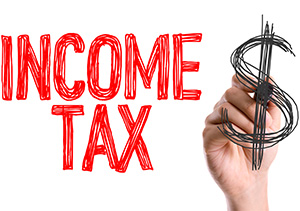Singapore Taxation Guide on Foreign Sourced Income
 Singapore tax policy is outstanding, and this is why the country is often regarded as the tax haven. Factors like low and competitive tax rates, exemption schemes and a series of tax incentives make the nation more fascinating for the foreign investors. Most importantly, the government of the country liberalized the Singapore taxation rules on foreign sourced income. The nation has adopted a territorial basis of taxation. The core objective of this blog is to provide more information on foreign sourced income policies in Singapore.
Singapore tax policy is outstanding, and this is why the country is often regarded as the tax haven. Factors like low and competitive tax rates, exemption schemes and a series of tax incentives make the nation more fascinating for the foreign investors. Most importantly, the government of the country liberalized the Singapore taxation rules on foreign sourced income. The nation has adopted a territorial basis of taxation. The core objective of this blog is to provide more information on foreign sourced income policies in Singapore.
As per the Singapore Tax Act, Section 10(1), the Singapore corporate tax is levied on the income earned from Singapore or received in Singapore from outside the country. Precisely, income earned outside Singapore or foreign sourced income is subject to taxation in Singapore. However, some exceptions are there. Foreign sourced income is only taxable if it has an office or branch in Singapore.
Under the Section 10 (25) of Singapore Tax Act, foreign sourced income is taxed only when the income is received in Singapore in following ways:
- The income that is transferred, remitted or brought into Singapore;
- Any amount of income derived from foreign which is applied in or towards satisfaction of any loss or debt incurred by trade or business carried on in Singapore; and
- Foreign sourced income applied to purchase any movable property which is brought into Singapore.
Scope of Tax Exemption for foreign sourced income:
The Singapore government has consistently been trying to encourage foreign investments and funds to the nation to promote or advance its economic conditions and retain its reputation of being the easiest place to do business for foreign entrepreneurs. As a part of this initiative, the government has liberalized the taxation rules to exempt foreign sourced income from being subject to any further tax in Singapore.
A Singapore tax resident individual and company can enjoy tax exemption on its specified foreign income that is remitted into Singapore on or after 1st Jun 2003.
The specific foreign incomes are:
- Foreign sourced dividends;
- Foreign Branch profits; and
- Foreign sourced services income
Qualification conditions for tax exemptions:
Under the section of 13(7A) of the Act, with the effect of 1 January 2004, Singapore resident individuals are free to bring back any of their income generated by a foreign source without any further tax on such income.
As for Singapore resident companies, under Section 13 (9) of the Income Tax Act, tax exemption will be granted if the following conditions are satisfied. This treatment came into effect on 1 June 2003.
- The highest headline corporate tax rate of the foreign jurisdiction from which income is received is at least 15%; and
- The specified foreign income received in Singapore has been subjected to tax in the foreign jurisdiction.
Singapore resident companies which do not meet the conditions mentioned above are liable to taxation in Singapore. However, Inland Revenue Authority of Singapore (IRAS) will grant a tax credit to the companies on whatever tax did they pay under foreign jurisdiction even if there is no double taxation treaty is in place.
With the flexible tax policies in Taxation Singapore of foreign sourced income and an array of pro-business tax rules and system of offerings including one of the lowest headline corporate income tax rates at 17%, Singapore will continue to attract foreign investors and entrepreneurs for company incorporation in this business epicenter of South East Asia.





